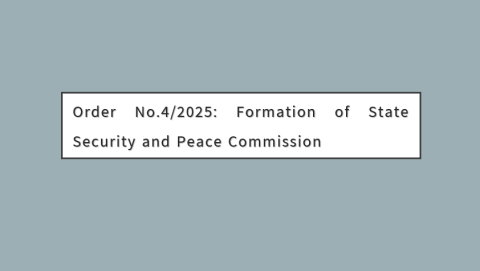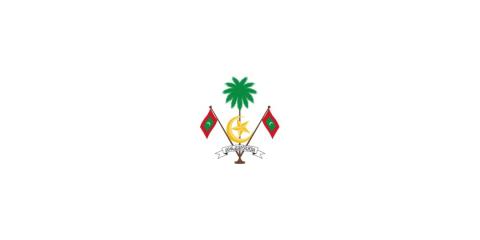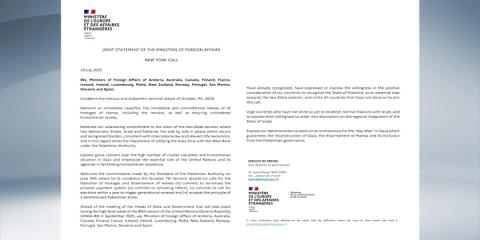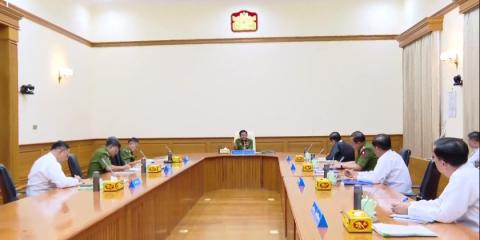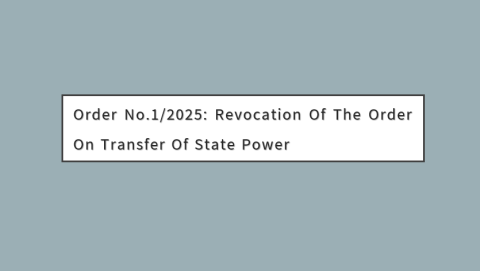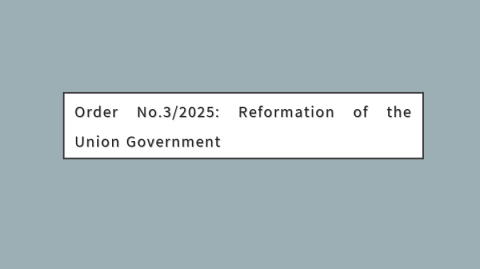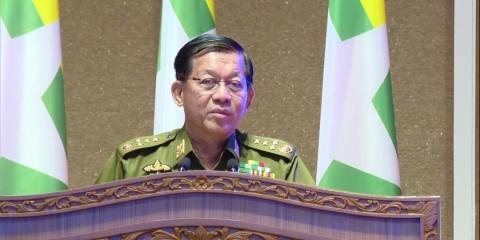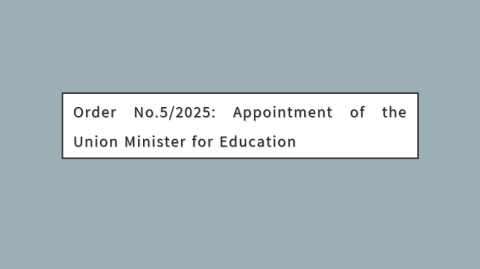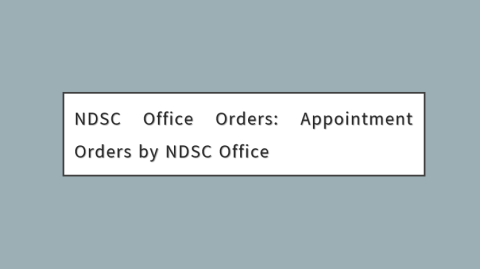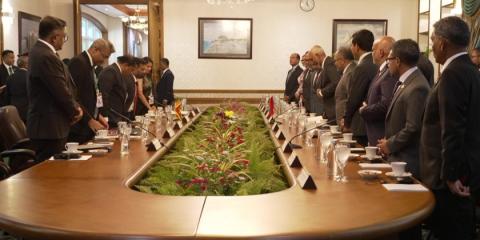A ceremony honouring the State Administration Council of the Republic of the Union of Myanmar was held at the Zeyathiri Beikman in Nay Pyi Taw on Wednesday. Chairman of the State Administration Council Prime Minister Senior General Min Aung Hlaing attended the event and delivered a speech.
He stated that the State Administration Council has been serving state duties for four and a half years, and that extensions have been made in accordance with the Constitution to successfully implement the Road Map. He expressed appreciation to all members of the government throughout this tenure for overcoming various challenges and obstacles.
He emphasized that the Tatmadaw is part of the state and that Tatmadawmen are part of the people. The Government and Tatmadaw have worked together to achieve lasting peace in the country, where national brethren live in unity and harmony.
The Prime Minister added that the State Administration Council government has implemented the KG+9 compulsory education system as part of the education reform process, contributing to the development of human resources needed for economic progress.
He reiterated that terrorists had committed destructive acts to prevent academic learning, the operation of hospitals and clinics, and business activities. He noted that such acts have only led to the deterioration of the socio-economic conditions of local communities, affecting health, education, and the economy.
He stated that agriculture and livestock are the primary sources of livelihood for rural populations, and that improving their social status could contribute to national economic development and poverty reduction. Highlighting the broad sown acreage of 6.39 million acres along the Ayeyawady and Chindwin rivers, the Prime Minister urged all to strive for double cropping to achieve higher yields and strengthen the nation’s economy.
Regarding the political process, the Prime Minister stressed the importance of having well-educated individuals with critical thinking skills represent the Hluttaw, as it is a legislative body. He also emphasized the need for collaboration among all stakeholders to ensure the participation of all eligible citizens in the voting process.
The Prime Minister expressed thanks to all stakeholders for their hard works and urged all to continue support for the journey ahead. After the meeting, a luncheon was served while the Myawady Music Band entertained with melodious songs.
mitv

